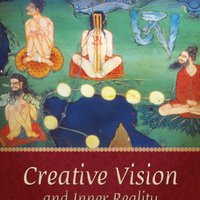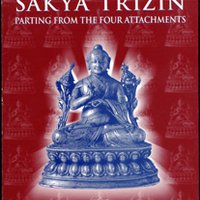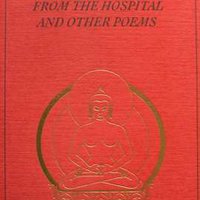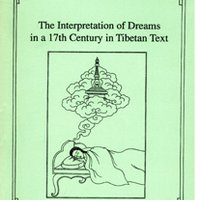Excerpt from the book "The Dzogchen Teachings" by Dzogchen Master Namkhai Norbu
Dedication of Merit
The third Sacred Principle is the Dedication of Merit, which is a practice inseparably linked to our intention. When, for example, we do long-life practice, we do it because we want to have a long and prosperous life with as many positive factors influencing it as possible; but if that were to be our only intention, it would not be enough. We need to ask ourselves why we want a long life. We should not want to prolong our lives just in order to have more time for our business or for our political interests. We should do long-life practices because we wish to live for a long time in order to attain realization. If we live longer, we will have more time to practice, and if we are prosperous, we will have fewer obstacles to interfere with our realization. The purpose of realization is to benefit all sentient beings. This is why we are on the path. We must be aware that the infinite sentient beings to whom we dedicate any merits arising from our good actions and practice have no knowledge of the teachings or of the path. This means that they experience infinite suffering. We are seeking realization not just for our own benefit, but with the awareness of the infinite suffering of the infinite beings in samsara. If we really develop this awareness, there arises a real, rather than an artificial, compassion.
The Buddha taught that we should observe ourselves, and that through observing our own condition there would arise the wish to benefit others. If, for example, we imagine ourselves in the place of those who are not on the path, we can understand how infinite their suffering is. Such beings have no guarantee of liberation, and that is very heavy.
Those of us who are on the path have made a connection through which we are not only able to receive and practice the teachings, but also, through the power of this connection, have a real guarantee that we will one day attain realization. We have the good fortune to have learned many methods, some of which, if we use them correctly, can even bring us to realization in this very lifetime. We must think not only of ourselves, but also remember the suffering of all sentient beings, and thus cultivate bodhichitta, the aspiration to arrive at realization for the benefit of all other beings. Applying bodhichitta in a way that is alive and concrete, we develop a real compassion that is not just a matter of words.
We are seeking realization not just for our own benefit, but with the awareness of the infinite suffering of the infinite beings in samsara. If we really develop this awareness, there arises a real, rather than an artificial, compassion.
False Bodhichitta
Sometimes people speak a great deal about bodhichitta and love for others, but they never actually observe their own thoughts or intentions at all. Then everything they do can become a little like the games politicians play. Politicians promise all sorts of things, but often don’t keep their promises once elected. For example, a certain party might continually make promises that if they are elected, they will provide everything the people need free of charge. But once they win the election they conveniently forget whatever they promised in order to get people to vote for them. Unfortunately, we sometimes do just the same, and claim to be practicing compassion for the benefit of all beings; but if we were to really observe ourselves and the way we actually behave in our lives, we would notice that in fact we never even relax our tensions enough to even get along with our own friends or with our Vajra sisters and brothers. We don’t even have compassion for those close to us, let alone all sentient beings. This kind of falsehood clearly does not correspond to real bodhichitta, to the real expression of a pure intention to benefit others.
We accumulate merits through practice, particularly through the practice of contemplation. In fact, when we practice and find ourselves in the state of contemplation, we can accumulate infinite merits; and then again, when the teacher gives an explanation of the teachings and you try to understand this knowledge through your intention and collaboration with him or her in the field of transmission, you can accumulate infinite merits. We should then dedicate these merits to all sentient beings. Once the merits have been dedicated, they always develop; they can never be destroyed. If you do not dedicate your merits and become distracted while losing your awareness, perhaps in the experience of a strong emotion such as anger, you can destroy in that one moment of anger the accumulation of thousands of kalpas of merits. That is what has been said by the great Master Shantideva in the Bodhisattvacaryavatara.




